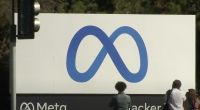Apple, Google, and Meta will have to continue defending against lawsuits that accuse them of promoting illegal gambling through casino-style apps on their platforms. A US district court in California ruled this week that the companies cannot rely on Section 230 of the Communications Decency Act to shield themselves from liability over payment processing for these apps.
The decision, issued by Judge Edward Davila in San Jose, rejected the companies’ central claim that Section 230, which generally protects internet platforms from responsibility for third-party content—applies to their role in hosting and facilitating financial transactions for casino apps. Davila ruled that the aforementioned firms were not acting as publishers when handling payments and therefore could not invoke the law’s protections.
The lawsuits, filed in 2021, accuse Apple’s App Store, Google’s Play Store, and Meta’s Facebook of fostering what plaintiffs describe as an “authentic Vegas-style experience” designed to hook users into compulsive gambling. Plaintiffs allege that the platforms facilitated a racketeering scheme, knowingly promoting addictive apps while collecting 30% commissions on in-app transactions.
According to the filings, these commissions generated more than $2 billion in revenue for the companies. The suits further claim that users suffered severe personal consequences (including depression, suicidal thoughts, and financial losses) after becoming addicted to the casino-style products. The plaintiffs are seeking triple damages, along with compensatory relief and other remedies. While the case is still at an early stage, the financial stakes could be considerable if courts ultimately rule against the companies.
In a 37-page order, Judge Davila revealed that the legal question was not about the apps’ content but about whether the defendants improperly processed payments tied to simulated gambling. He added that providing “neutral tools” to support the apps did not exempt the platforms from liability. The ruling dismissed some claims based on state laws but allowed most consumer protection claims to proceed, except those tied to California statutes. Davila also granted the companies the ability to immediately appeal his decision to the Ninth US Circuit Court of Appeals due to the centrality of Section 230 issues in the case.
Section 230, enacted in 1996, has served as a foundational legal shield for online platforms, stating that “no provider or user of an interactive computer service shall be treated as the publisher or speaker of any information provided by another information content provider.” Traditionally, the statute insulated companies from lawsuits over user-generated content, helping foster the explosive growth of internet forums, social media, and marketplaces. Landmark cases have defined its scope. Lawsuits against Craigslist and Backpage.com, for example, tested whether platforms could be liable for illegal or harmful user postings. Plaintiffs in these cases argued that the websites facilitated prostitution and sex trafficking, but courts generally found in favor of the platforms, citing Section 230 immunity—even when the sites allegedly profited from illegal conduct. Only in rare situations, such as when a platform was found to have materially contributed to the content’s illegality, did courts allow claims to proceed.
In the past five years, the reach of Section 230 has been narrowed and tested, particularly as platforms deploy recommendation algorithms or facilitate financial transactions. The Supreme Court, in cases like Gonzalez v. Google (2023), considered whether algorithmic recommendations that amplify harmful content could fall outside statutory immunity.
The Tech Portal is published by Blue Box Media Private Limited. Our investors have no influence over our reporting. Read our full Ownership and Funding Disclosure →






